Youth & Teens FAQ
Frequently Asked Questions
This is a big question and can be difficult to answer. As you consider your answer, think about how you would answer these questions:
- Do I have a safe place to stay?
- What needs to change for me to want to stay at home?
- Are there things I or others can do to improve the situation at home?
- Is there someone I can talk to about my situation?
- Do I have a plan that is well thought out?
- What if my initial plan doesn’t work?
- What are my other options?
- How will I survive on my own? (such as food, money etc.)
- What are my concerns about staying and leaving?
- Who can I count on to help me?
- Is home safe?
- What about school? How will I continue to get an education?
The National Runaway Safeline, in partnership with Greyhound Lines, Inc., offers the Home Free program, which reunites runaway, homeless and exploited youth with their family, guardians or an approved living arrangement through a free bus ticket home or to a stable place live where they can access appropriate services.
Think Home Free might be right for you? The first step is to call 1-800-786-2929.
We’ll discuss your situation and determine if you’re eligible. To qualify, you must be between the ages of 12-21. Youth may return to either parent, legal guardian or an approved alternative living arrangement (ALA). To receive a bus ticket to an ALA, legal guardians must give approval and be involved in every step of the Home Free process.
Next, we’ll facilitate a conference call between you and your parent/guardian to talk about your return and determine a plan of action. For your safety, NRS will ask for documentation that will help verify the identity of those using the home free program.
Then, we’ll contact Greyhound to make travel arrangements and share the travel itinerary with you and your family.
Home Free isn’t just a bus ticket home. We want you to be safe, and once home, equipped to address issues that may have led, or contributed, to your decision to leave. We want to help you rebuild relationships with family and friends and develop connections with positive and caring adults.
In addition to working with you and your guardians to develop a plan before you return home, we also provide you with local resources that can help with ongoing support once you return. After you arrive home, we follow-up to see how things are going.
A Safe Place to Stay. Whether you’re thinking of leaving home or have already left, NRS can help you find a safe place to stay. We have an extensive, up-to-date database of resources, including shelters, across the country. When you contact us, we can work toward locating an open bed in a shelter in your area. If we cannot confirm a spot in a shelter, we’ll work with you to explore other options.
Abuse at Home. If home is no longer somewhere you feel safe, NRS is here to help. NRS crisis service team will help you explore your options and further clarify when we are required to make an abuse report. If you do decide to file a report, we can guide you through the reporting process or filing a report on your behalf.
Laws are different from state to state, city to city and county to county on running away and emancipation. Emancipation for a young person is the process of becoming independent from their parents or guardians. A minor who is “emancipated” assumes most adult responsibilities before reaching the age of majority (usually 18). The law doesn’t consider emancipated minors to be under the care and control of parents. Instead, they take responsibility for their own care.
We are not legal experts, but when you contact the NRS crisis services center, we can speak in general terms about your situation and try to find out how laws in your area will affect you. We can also connect you to a legal resource in your area to provide advice.
If you need help communicating with your parent(s), we can set up conference call. While everyone is on the line together, we will help make sure that everyone feels heard and plan that everyone agrees upon is made.
Another way to start or improve communicating is with our message service. You can give us a message to be shared with your parent/guardian. Having someone else deliver your message may be a less heated way to start a conversation.
Bullying is unwanted, aggressive behavior that involves a real or perceived power imbalance. Bullying includes actions such as making threats, spreading rumors, attacking someone physically or verbally, and excluding someone from a group on purpose. No one deserves this abuse or mistreatment.
If this is happening to you, contact NRS to discuss steps to stop the bullying.
Some helpful websites are listed below:
For so many of us, COVID-19 is significantly impacting us emotionally and physically, and it may seem like there are not a lot of places to turn to for help. We are fortunate to be part of a vast network of partners who are available to provide support.
Click the link below for our partner directory to make it easy to find the resources you may need.
